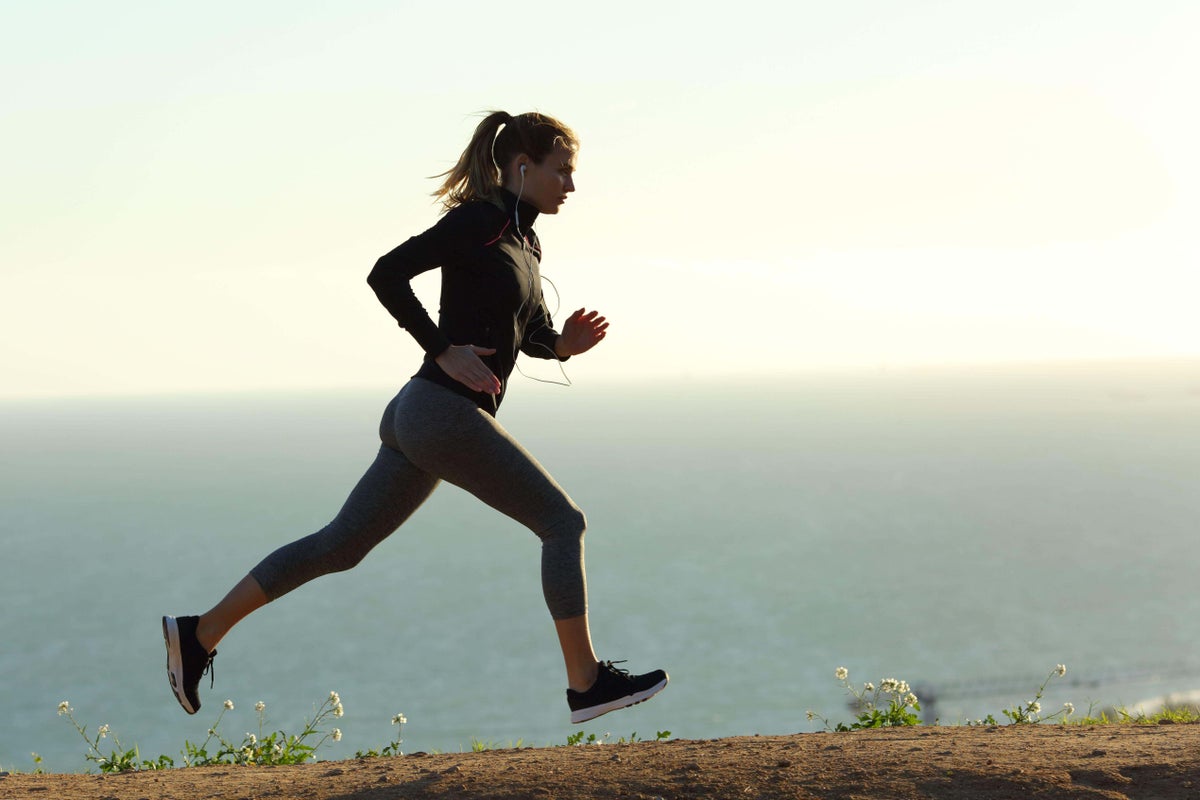
As the 2025 Adidas Manchester Marathon and the 45th edition of The TCS London Marathon approaches, more than 86,000 runners are expected to complete the 26.2 miles on Sunday, 27 April.
When it comes to the aftermath of a marathon, it can be a whirlwind of emotions as runners cross the finish line, ranging from relief, sadness, pain and excitement. What can often be overlooked during the coming hours, days or week following the big race is recovery and how to best look after your body.
We spoke with four seasoned marathon runners about how they recover post marathon.
Decompress your body
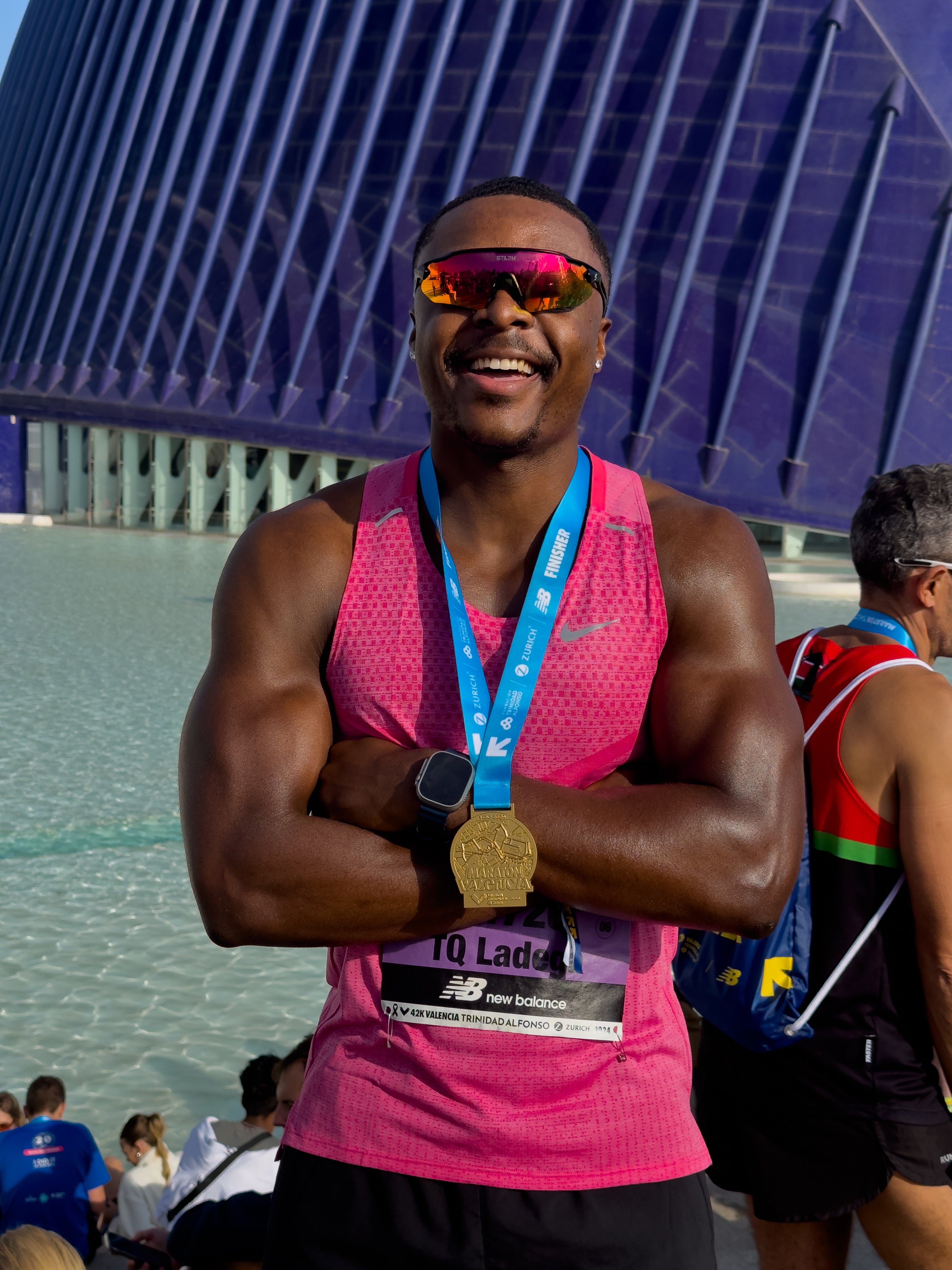
Timi Q Ladega from East London, 24, has been running since he was 14 as he played football. After stopping the sport at 18, he picked up running again a few years ago which led him to run six marathons in one year: Berlin, London, Manchester, Brighton, Valencia and Lisbon.
For Ladega, recovery time was short due to the amount of marathons he had planned in a short space of time. However, he advises runners to take the well-deserved and much-needed time to relax.
“The days and week following a marathon in particular is when I would say to really give yourself some respite. Don’t even think about running,” Ladega says.
“After you’ve taken those couple of days to genuinely rest, I would then advocate for yoga mobility. Once you feel like you’re ready to start moving again, you should always prioritise stretching due to the amount of load that has been put on your body. I like to personally add additional things, such as ice baths, saunas and massages quite a lot. So for me, the main piece of advice is just to decompress and get a lot of the knots and tightness out when you can.”
Get as much sleep as possible
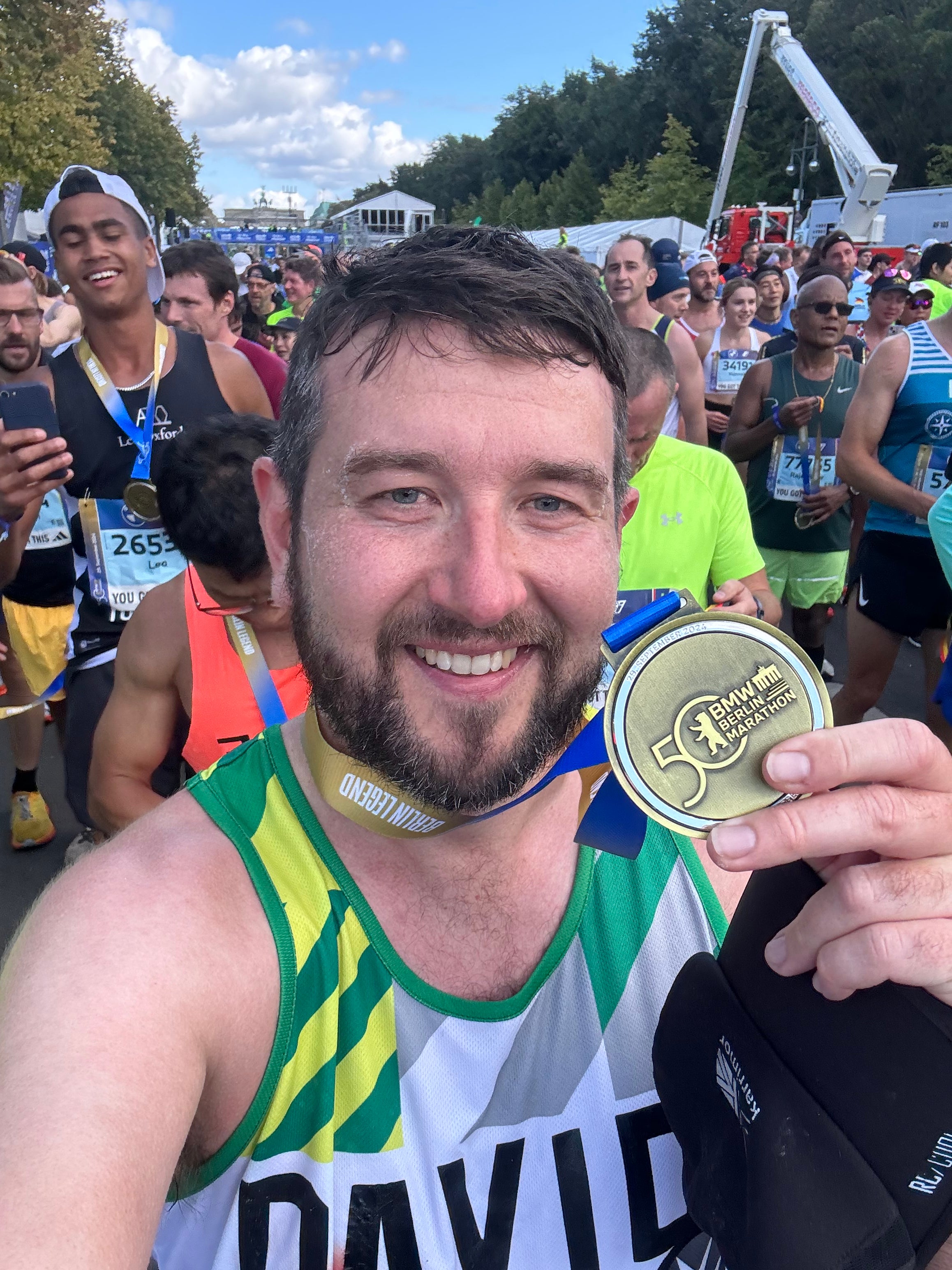
Thirty-eight-year-old TV journalist David Blackmore who has ran 11 marathons – Brighton, Vienna, Atlanta, London, Edinburgh and The Big 6 Marathon Races – which earns runners a ‘Six Star Medal’, says that taking time to sleep and relax before running again is crucial.
“The week after for me looks like getting as much sleep as I can and it’s really going to help fuel that recovery,” says Blackmore.
“I think most runners will find it interesting that in the build-up to marathon training, if you miss one run, your body is absolutely crying out to go out. However, most people are surprised that their brain actually goes, do you know what? Now’s the time to rest after the marathon.
“In saying that, it’s still really good if you can get out and walk to just try and get the legs and muscles working again, rather than just staying stationary. Cycling and swimming are great too, as both of them are going to be really good to help get your legs moving as well.”Focus on nutrition and skip alcohol
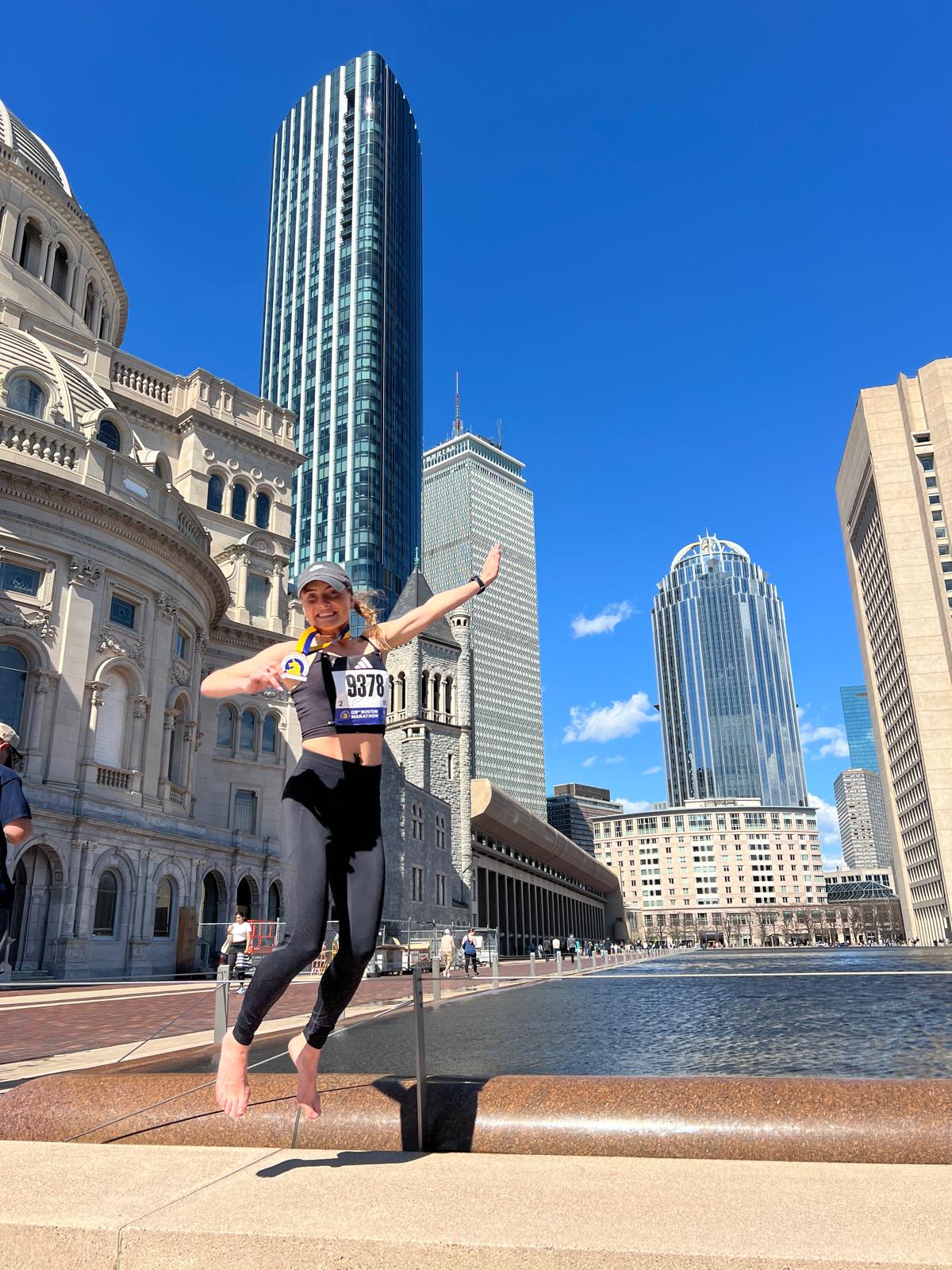
Jessica Watson, 29, co-founder of FemTech personal care brand Gloriah, has ran five marathons, including her first during lockdown in Glasgow, achieving a time of 3:13.
Although Watson is now injured due to sciatica and cannot take part in the London Marathon, she said that focusing on nutrition is something that she is now aware of going forward.
“You’ve obviously lost a lot of fluids, so I would always have an electrolyte drink, just like a sports drink, or even the little tablets that you get now and then in your marathon bags. You need some easy carbs and proteins – a banana or a protein shake is just like getting your essentials back into your body in the first 24 hours.
“Within your first 24 hours it’s just really important to focus on your food and try to skip alcohol. Now that I have been injured, I’ve done a lot more research into nutrition, which is never something that I actually looked into beforehand. However, eating quite a lot of high-protein, anti-inflammatory foods within that first 24 hours is really important.”Walk post-race and focus on your mental health
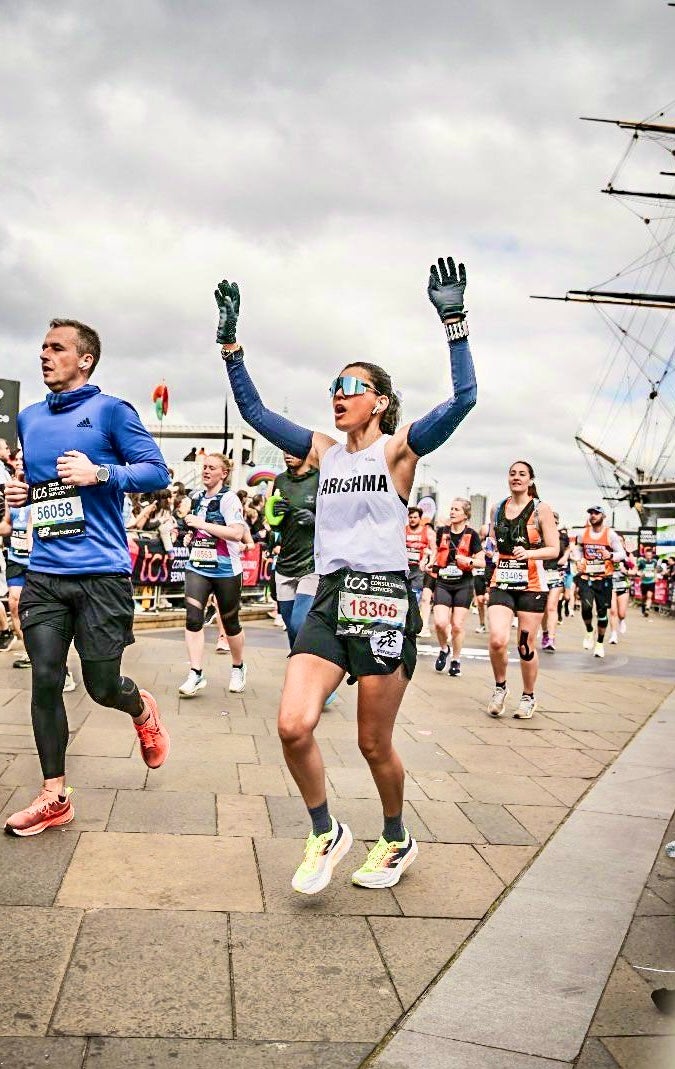
Karishma Chandhyoke is owner of Anvaya Travel and an experienced marathon runner, who has been competing since the age of 21.
After running London Marathon twice, Chicago, New York, Boston, Tokyo and Seville, she is now prepping for Berlin in September, which will be her sixth star. She has said that small things, such as walking post-race and avoiding static stretching, has made a difference to her recovery.
“When I finish, I always carry on walking for a bit. I often see people stop or fall on the floor, but you need to keep walking to bring the body back down. So one thing I’m really adamant about is walking for 10 or 15 minutes,” says Chandhyoke, 44.
“I also see some people static stretching right away. I do not static stretch either, I just keep walking.
“I find that running a marathon is also a super-mental feat, not just physical, and I allow my mind to come down for a couple of weeks afterwards as well. For example, I booked a long trip after my Tokyo marathon to do all the sightseeing and actually have fun, rather than just making it all about the race. Try and do as many activities as you can, because probably during the months before, you had to give up a lot and you couldn’t socialise as much.”
Publishers Clearing House known for doorstep giveaways files for bankruptcy
Onijah Robinson’s 19-year-old boyfriend breaks silence after her viral Pakistan trip
GAP launches new premium line inspired by red carpet pieces
Globetrotting grandad left bedbound by debilitating condition
Seven common routines that could damage your kidneys’ health







